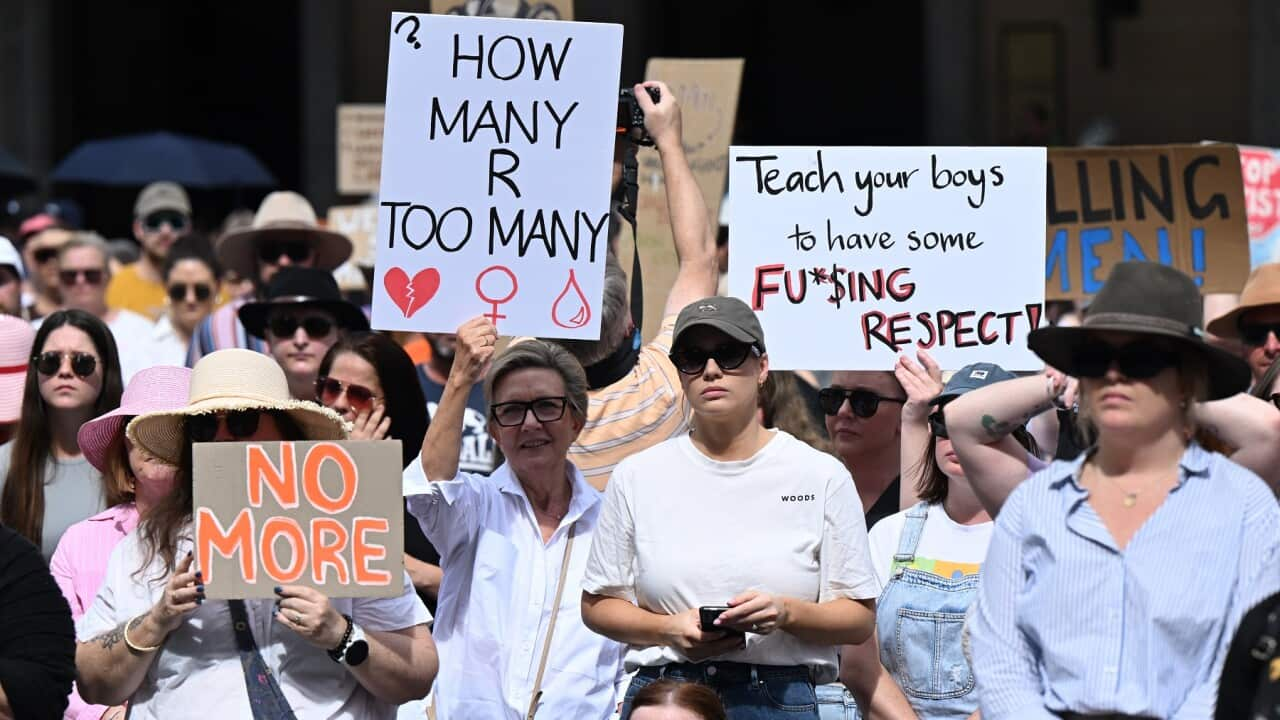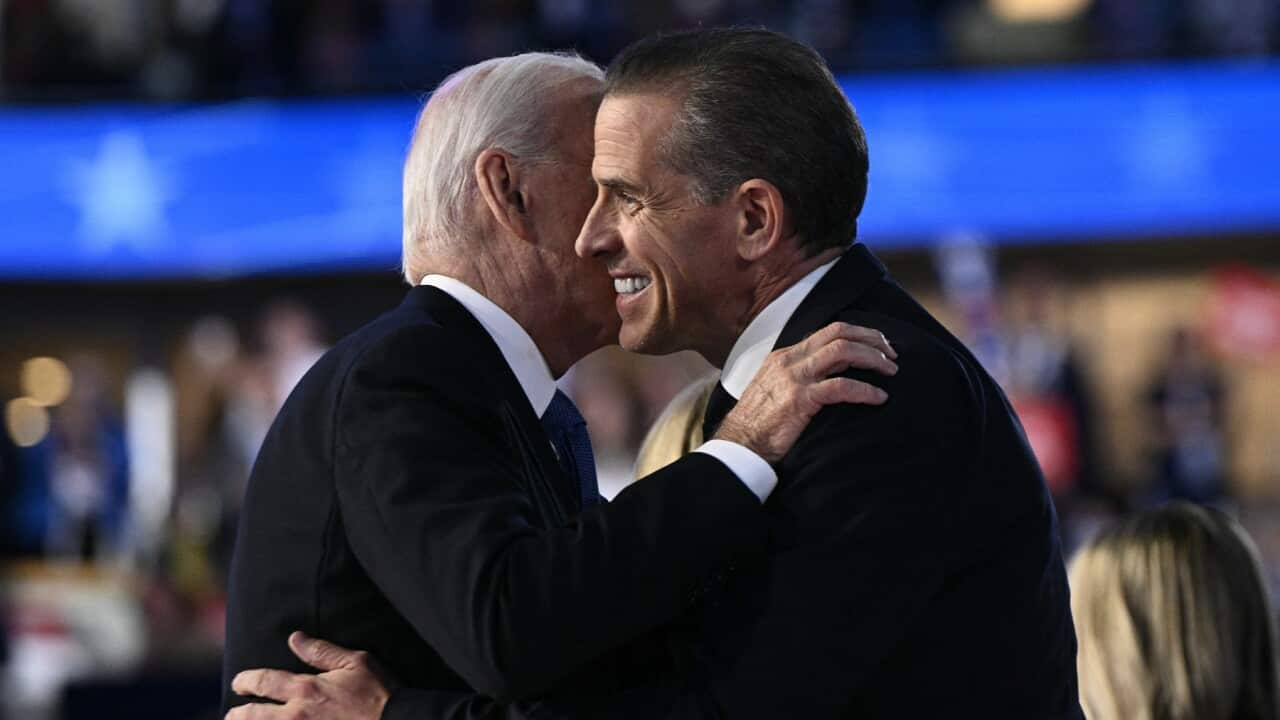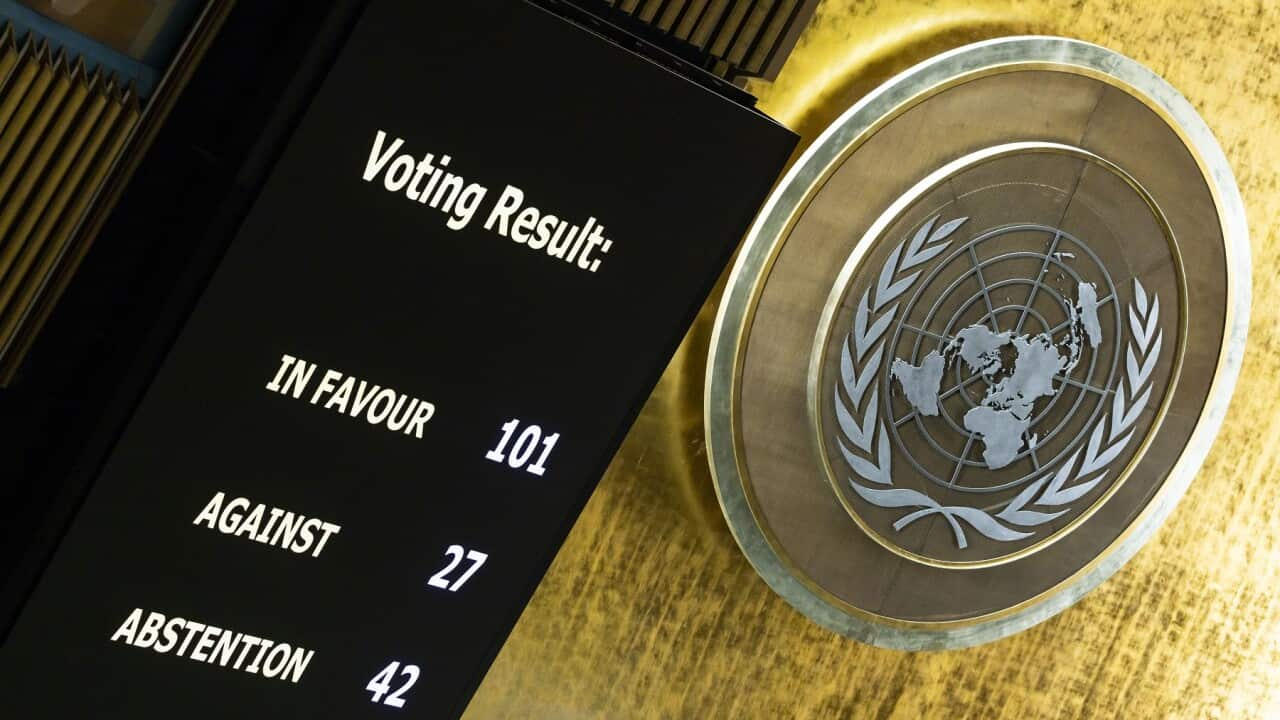TRANSCRIPT:
At a recent rally held in Canberra to protest gendered violence, Prime Minister Anthony Albanese made his position clear.
"We need to address this in a serious way, week by week, month by month, year by year."
State and territory leaders say they feel the same way as the PM.
At the last national cabinet meeting for Australia's state and federal leaders, they agreed on a suite of changes, including work to improve police responses to high risk or serial perpetrators of violence against women, and the better sharing of information between jurisdictions.
Police ministers and Commissioners from across the Commonwealth have now come together in Canberra to talk about how those police and information responses might work.
First Nations, migrant and refugee women are at greater risk of being misidentified as a perpetrator, often due to behaviour linked to trauma and mistrust of police and the justice system.
Attorney General Mark Dreyfus says they must take into account those with lived experience of violence, and the people who advocate for them.
"To develop options for improving police responses to high risk and serial perpetrators, including considering use of focus deterrence and fixated risk strategies...As police ministers, we look forward to reporting to National Cabinet later this year."
Individual states are also making their own moves.
The federal government has already announced a new stage of their Stop It At The Start advertisement campaign will go live midway through next month - and that they'll spend $925 million over five years on $5000 crisis payments for women leaving violent situations.
New South Wales Deputy Premier Prue Car has announced the state will deliver its own emergency package, the full details to be confirmed within days.
She says the focus shouldn't just be on emergency and crisis responses, but long-term solutions for services and the housing needs of women escaping violence - especially in the regions.
"And then also, we will be talking about the medium and long-term action we need to invest in and drive as a government, in terms of, driving the cultural change to stop women from dying and to stop women from being victims of domestic violence, family violence and violence in their intimate relationships."
Women's groups involved in frontline support hope there'll be more funding for the work they do.
Use of duty legal services through NSW Legal Aid's DV unit has surged by 61 per cent in the last year, in part due to their expansion into the regions.
National Legal Aid is calling for $317 million annually to address increased need for their services, which help women and children navigate family law and apprehended domestic violence orders.
Domestic Violence NSW, which advocates for services across the state, says budget comparisons show the state government spent $200 million less than Victoria on addressing gendered abuse, despite its larger population.
Women's Domestic Violence Court Advocacy Service manager Tanya Whitehouse says more action is needed.
"The domestic violence sector is, in my experience, a little jaded by talk that we get all the time. We've seen this before when we've had other tragedies and we have had good things created. But, there needs to be more and needs to be better. And I think one of the key things is perpetrator accountability, electronic monitoring is one option. It's going to cost money. Find the money. Stop using it on other things."
Frontline workers say boosting support for men's behavioural change programs should be a critical component to the New South Wales proposed emergency gendered violence package.
Relationships Australia NSW, a provider of relationship support services, says hundreds of men still remain on behavioural change program waitlists.
Rosie Batty, a former Australian of the Year whose 11-year-old son was murdered by his father, says there's a need for cultural change.
"It's really important to understand how do we influence our young people? They are smart, they are intelligent. If we're going to stop the cycles of violence we need to work with young people and give them the - allow them to see the different ways of viewing the world and understand the pathways they can take."
Domestic violence appears to be especially acute in regional and rural Australia.
Australian Institute of Health and Welfare data shows people in remote areas are 24 times more likely to be hospitalised due to domestic and family violence than their urban counterparts.
The situation is the result of deep structural problems like fewer first responders, a lack of specialist services and refuges, as well as long distances to hospitals.
Researcher Bridget Harris says the social fabric of small towns - where everyone knows everyone - can also make reporting and escaping violence particularly difficult.
Mark Dreyfus says there are no easy answers to the crisis, but state and federal governments are determined to do what they can.
"There's a great deal of work already underway across all states and territories on gendered violence to safely leave a violent relationship... We must continue to build on these efforts."
Meanwhile, New South Wales Housing Minister Rose Jackson has a particular message for women ahead of the emergency package announcement.
"I know that you are angry and that you are exhausted. You have been carrying the burden of looking after your own safety for far too long. Where you sit on public transport, what you wear, how you talk, when you go for a run, where - all of that energy and effort to protect your own safety has fallen on your own shoulders, and we as a government want to step up and give you a rest."













